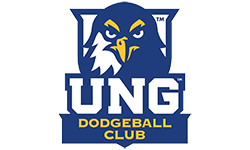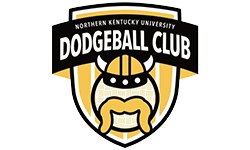As the saying goes, “if you’re not growing, you’re dying.” This past offseason, there were 5 total rule/policy changes and 1 bylaw change, each of which with their own positives and negatives. However, two of those changes have been both significant and controversial; Executive Board veto power on member team’s votes for rule changes, and the new “clean-blocking” rule change. Since most teams have gotten a couple games under their belts we have been able to see the effect the blocking rule has had on games, and had a chance to form reasonable opinions about the change. Alternatively, the Executive Board veto power has only been used once thus far in order to pass the newest blocking proposal. Either way, people around the league still have their opinions on the changes, and I had a chance to talk with some individuals from across the league about these changes.
Overall, views are mixed, but I want to start with some of the issues I have heard with these two new changes.
On the note of blocking, there are individuals that believe the new change makes it more difficult to get new members into the league. This is because for one, it makes it a lot easier to get people out, as well as get out during the course of a game. As a result, the newer and less experienced players will get out more frequently during opening practices/try-outs, discouraging some people from continuing to play. Secondly, there is a belief that the new change has made matters more complex when determining questionable calls and situations. Under the old rule it was quite simple, once “ball hits ball” everything is dead. Now however, there are different scenarios that can occur which can be difficult to interpret in the heat of a game, and thus can also be hard to explain to brand new individuals. This added level of complexity, whether minor or extreme in the minds of different people, is something that never occurred under the old rule. Another point that has been brought up is in regards to the pace of the game. One of the reasons this rule was proposed in the first place was because people wanted a faster game that had more players getting out. In matches between less skilled teams, this has had some merit. However, for the more experienced and skilled teams, “clean blocking” has never been much of an issue, and so there hasn’t been much of a decrease in point durations in the eyes of many players.
Switching over to the new bylaw which essentially gives more power to the NCDA Executive Board, there are also some concerns that have been brought up. The biggest issue going forward is that teams want to feel like their vote matters. With the Executive Board being able to control votes (at least in the case of less than super majority decisions) it does take away some power from member teams. In the event where a simple majority of the league votes one way, and then has to see that choice get shut down, it leaves a sour taste knowing that regardless of popular opinion a vote was “not counted.” The other issue is that this change was made solely by an Executive Board vote, without the opinion of the rest of the league. It has created a bit of disdain with some member teams because not only is there the issue of having a choice potentially discredited, this decision can be seen as a way to eliminate a choice entirely.
Now I want to address the positives of the changes brought up by some member teams.
The switch to “clean blocking” has been seen as a positive for a good number of teams so far this season. On top of just general perception and feelings, there is evidence that it is increasing score totals for games, even if just marginally. Last year the average score for a game was close to 3.2 points for the winning side versus 0.5 points for the losing side. This year, the average score has so far been 3.3 points for the winning side and 0.96 points for the losing side. Even though it amounts to only about a half-point difference, it is a step in the right direction for making games more competitive and higher scoring. Another thing people seem to like about the change is that blocking has now become a much more necessary skill in order to play. Being able to cleanly block a ball and truly protect yourself has much more value now, and helps set more players apart from each other. Perhaps the most overwhelming thing people like under the new rule though is the elimination of “traps” and instead turning them into regular individual catches. This was a change that almost everyone wanted to see and it has come as a result of the new rule.
Personally speaking, I was surprised to see the amount of support for the new bylaw change. This is not to say that it was a majority, but a bigger chunk than I was expecting. One very crucial point that was brought up by DePaul’s Tyler Hamilton:
“The one benefit I do see to that is that a lot of teams in the league are very resistant to change. Either from a lack of playing other types of dodgeball or from a comfort of already being good with the current rule set, they ignore things that can improve the game and make it more recognizable among the dodgeball community.”
The point of having representative leaders is to help lead large organizations in the right direction when it becomes too difficult for each individual to always manage on their own, or in this case each member team. Part of that includes being able to see a bigger picture and lead their respective group in a positive direction. In this case, having the ability to see the general direction and then act on what they see, this is exactly what is necessary for representatives of the league.
In order to form a more perfect dodgeball union, it is important that we get feedback and listen to the thoughts of those directly and indirectly involved with the league. Feel free to share your thoughts and opinions in the comments section below.

























